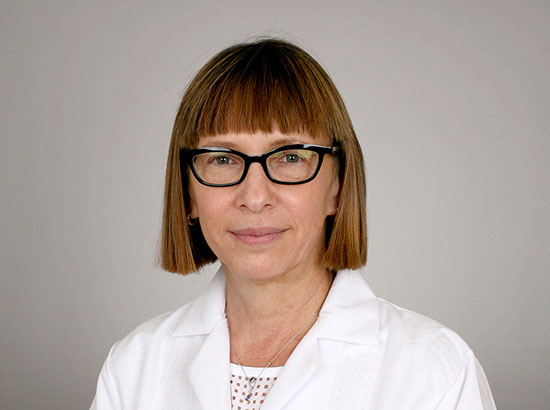
Pamela Schaff, MD
Pamela Schaff, MD, was 17 years old when she had a revelation.
Schaff, now associate dean for curriculum at the Keck School, was just a teenager visiting her mother, who was recovering from minor surgery.
“I was walking down the hospital corridor to go visit her, and I got my calling; I just knew that I was going to be a doctor,” she said. “It sounds corny, but that’s what happened.”
In college, she was a pre-med English literature major and, after earning her bachelor’s degree, she was off to Mount Sinai School of Medicine. Training at Children’s Hospital Los Angeles followed, as well as more than a decade in private practice.
She initially joined the Keck School in 1986 as a voluntary faculty member in the Introduction to Clinical Medicine (ICM) program.
“I fell in love with the process (of ICM),” Schaff said, “shepherding students through their early clinical skills, what it means to become a doctor — those first steps of professional identity formation.”
Her solid grounding in literature and humanities steered her to the Humanities, Ethics, Art, and Law (HEAL) program, which she currently directs. The program embraces narrative medicine, a practice that concentrates on narrative competence, enabling students to interpret and act on the stories that their patients share. This ability fosters empathy in medical students, benefiting their future patients and enhancing their own professional satisfaction.
Schaff also has been an integral part of USC Visions and Voices, the university-wide program that brings renowned artists and distinguished speakers to campus.
She has received the Excellence in Teaching Award in 1998, 2002 and 2005; KSOM’s Master Teacher Award and the USC-Mellon Mentoring Award in 2008; and USC’s Remarkable Woman Award in 2010.
Since her appointment as associate dean for curriculum in 2012, Schaff has overseen the four-year educational program for all Keck School medical students. She calls the job challenging but rewarding, especially since medical knowledge is growing exponentially.
“We strive to teach our medical students to be lifelong learners,” she said, explaining that their knowledge base also must include grounding in the humanities. “We want to make sure our students practice with compassionate brilliance.”
Even with all of this work with students, Schaff still finds time to see patients in the family practice clinic at Keck Medicine of USC.
“One of the most rewarding things is the time I spend in clinic seeing patients,” she said, adding that her teaching and work in curriculum enrich her practice. “When I’m with medical students, I’m reminded of what called me to medicine, of the incredible privilege it is to care for children and their families. And I’m a better doctor in the clinic because I spend so much time being inspired by my students and colleagues as we ‘grow and develop’ future doctors.”
by Amanda Busick